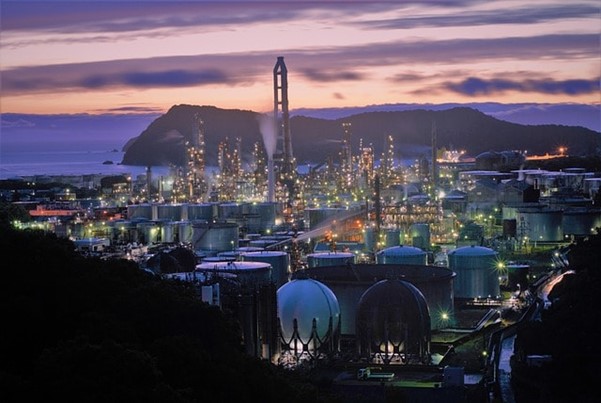The industrial waste disposal process works alongside pre-existing waste management systems. Given the size of the industrial industry, there are many ways for its waste to be effectively managed.
Effective practices in the management of industrial wastes go a long way in ensuring that the correct waste management procedures are followed. This can help to protect both human health and the environment.
This blog will discuss the methods used for the disposal of industrial wastes, the importance of those methods, and how Australian industries are contributing towards a cleaner and healthier environment.
Understanding Industrial Waste
Industrial waste is the unwattned materials generated during the processes of manufacturing, production, or some other industrial activity. These materials could include hazardous chemicals and metals, as well as non-hazardous materials such as plastics, paper, or even packaging waste.
Such waste is usually generated by factories, power plants, construction sites, and many other industrial activities.
Our blog A Guide to Industrial Waste explores many of these concepts in greater detail.
The Importance of Proper Industrial Waste Disposal
Proper industrial waste management and disposal ensures that the process of handling waste is done both safely and effectively. These measures help to save energy and reduce waste. Many seek to recycle waste through processes like raw materials extraction for scrap metal.
These practices are usually conducted at an EPA approved waste facility or chemical plants. However, given that industrial waste often comes in various forms and waste types, certain materials require additional regulations and new equipment in order for them to be safely disposed.
Environmental Protection
The uncontrolled disposal of industrial wastes presents grave threats to the ecosystem which can significantly affect the environment as well as the population.
Various toxic wastes including heavy metals, chemicals, and solvents are likely to be contained in industrial wastes that might percolate into soil and groundwater.
Safeguarding the environment, conserving natural resources, and protecting the health and safety of the members of the community becomes possible when industries adopt proper disposal techniques.
All in all, we need to be more responsible in waste management to ensure the wellbeing of the environment as well as for the efficient functioning of industries.
Health and Safety
The public and the surrounding community is at risk to significant health issues arising from either the handling of hazardous waste and from the waste itself.
Hazardous materials present a risk to health problems, ranging from mild skin and other respiratory issues to chronic ailments over a longer period of time.
Appropriate disposal of hazardous waste is essential in shielding human beings and the environment from the dangers waste presents.
Lastly, all businesses, for both ethical and legal reasons, have the responsibility of maintaining the health and safety of their employees and the general public. Managing the waste properly not only is following through with the rule of the land but rather a step towards safety.
Cost Efficiency
Business waste is a pressing issue that needs innovation to solve because every business wants to be more efficient and impact the environment as little as possible.
This can be done by implementing recycling and reuse principles. Additionally, these practices can also enable the business to get back valuable materials that can be fed back into the production cycle.
Not only is this sustainable but it also helps in achieving a circular economy where resources are maximised.
Additionally, businesses that engage in these activities can gain a better reputation and exposure towards waste management clients.
The Industrial Waste Disposal Process
The industrial waste disposal process is multifaceted, requiring businesses to follow specific protocols to ensure the safe and legal disposal of materials. These key components help with the overall handling waste process.
Waste Assessment and Classification
The very first thing to do in an effort to have efficient waste management is to determine classification of the wastes that are found at the given industry. This is very important because it will assist in determining the methods of handling, storage, and disposal the wastes.
Waste Segregation
After the waste’s classification and determination are done, waste material must be sorted out. A goal of sorting out waste is to avoid contact with hazardous and non-hazardous materials and hence the need to set aside special containers that go hand in hand with the type of materials inside them
Storage and Handling
Before any waste can be treated or disposed of, it must first be stored for a period of time. Storage is important for the purpose of preventing the waste material from adversely affecting the surrounding and causing a potential health hazard.
Transportation of Waste
After the waste is separated and stored, the next step is to transport it to an area for dumping or reuse. The transport of waste materials should be done only by trained professionals possessing the proper licenses.
Waste Disposal and Treatment
When the waste arrives at a dumping or treatment site, it will be examined and sorted according to the specific categories. The treatment is based on what type of waste it is and the danger it poses. Competent waste disposers will evaluate each kind of waste and offer the best service quotation.
Recordkeeping and Reporting
Every company in Australia has an obligation to account for how they manage their waste. These records contain the classification and the volume of waste generated how it was disposed of, and the sites to which it was sent. Recordkeeping is important for compliance and mitigating the damages to the environment.
Final Thoughts
The work of industrial waste disposal is something every contemporary business has to engage in. Australian companies, by managing their waste, can work towards being compliant, promoting sustainability, and reducing environmental impact.
Qualified waste management planning can lead to saving business costs, positively impacting resource recovery, and ensuring a safer work environment.
Cleanway is there to assist every Australian company that wishes to engage with some type of industrial waste. Whether it is construction waste, hazardous chemicals, or recyclable materials, Cleanway can handle it all.

